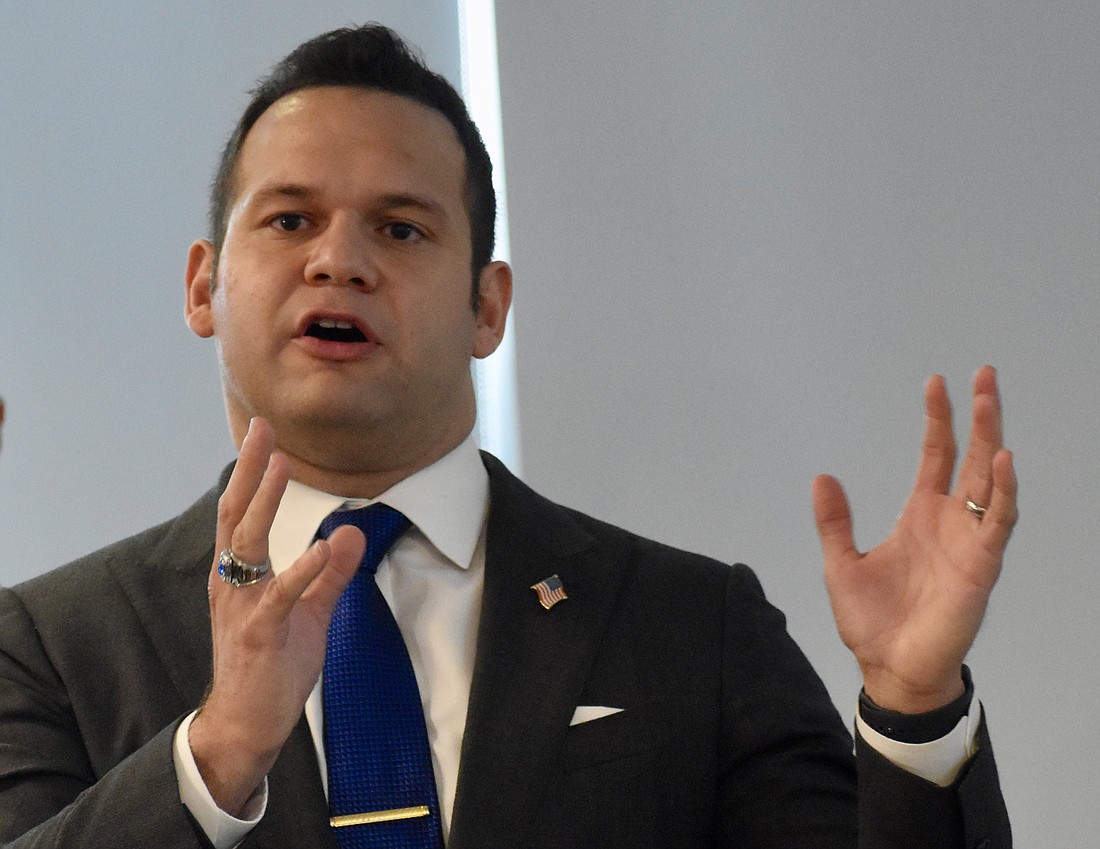- February 5, 2026
-
-
Loading

Loading

Over the course of two days last week, the Sarasota City Commission heard from the city manager, director of finance and department heads about why the proposed fiscal year 2023 budget included expenses for 25 additional personnel, infrastructure improvement and replacement, and an enhanced level of government services,
An increase of $6.4 million in general fund revenues, largely prompted by $3.65 million more in property taxes — 9.82% more than in the current fiscal year’s adopted budget — was welcomed news.
But not for everyone. The increase in general fund spending of $7.5 million to $85.67 million, leaving a deficit of $3.17 million in expenses to revenues, didn't sit well with Mayor Erik Arroyo and Commissioner Hagen Brody, both of whom expressed concerns about deficit spending and drawing down reserves to balance department budgets.
Both Arroyo and Brody joined Commissioner Jen Ahearn-Koch to approve reducing the maximum millage rate from 3.712 to 3.0 — the final rate will be set when the budget is adopted in late September — but suggested department heads fell short on controlling costs when preparing the proposed budget.
“What I’m hearing from the commission is that there is a desire to not lower the millage rate but there hasn't been any discussion regarding opportunities,” Arroyo said. “What I hear is some want to just adopt what’s been presented, not everybody but some, but there are some real opportunities I believe to save some money and lower this gap that we have.”
To close the general fund gap, the proposed budget transfers the $3.2 million from the general fund balance, which at 32.5% stands at well above the city’s policy of 17-25% of budgeted expenditures, leaving $27.8 million by the end of fiscal 2023. City Manager Marlon Brown called it an intentional drawing down of the fund balance to bring it more in line with city policy and state and bond rating guidance.
Brown and Director of Financial Administration Kelly Strickland said the $3.2 million gap is the result of the recommend millage reduction and a $1.6 million transfer to the Bobby Jones Golf Complex debt service, an enterprise fund that, once operational next year, is expected to be self-sustaining.
More than the general fund, though, there are expense-to-revenue gaps in the proposed Enterprise Funds budgets — such city services as Water and Sewer, $535,181; Van Wezel Performing Arts Hall, $2.92 million; Solid Waste Management, $1.3 million; and Parking Management, $161,546, for a total of $8.06 million combined. All told, the city’s proposed projected revenue of $233.28 million is $18.9 million short of its proposed spending of $252.18 million. Of that additional spending, $1.4 million is in new personnel.
The proposed budget hedges its bets in part against anticipated population growth to bolster future revenue with increased property values brought by pricey real estate that is planned or already under construction.
“I don't want to look at this budget as desperation or as a budget of opportunity,” said Vice Mayor Kyle Battie. “There’s population growth that will be coming down the line. I don't want to get to a point of robbing Peter to pay Paul where we're hoping for what tomorrow will bring to take care of us today, but there's a number of projects that are in development, maybe 700 to 800 multi-million dollar condominiums, that will be coming online, so that I think would keep us in a healthy place.”
Arroyo reminded commissioners of the strains an anticipated recession can bring to municipal government, and that nothing is guaranteed in an uncertain economy. When reserves in enterprise and other funds continue to be depleted, he added, eventually those shortfalls will hit the general fund.
“Do we want to go down this road of increasing staff, only to have to undo it in just a couple of years?” Arroyo asked. “Would it be worth it just to have two years of whatever we're trying to do to find that the population has not grown as much in proportion to the expenses that are that are increasing?”
Brody also advocated holding the line on personnel, specifically citing three additional SPD officers on top of the 10 already approved, and the request to expand the city's public information office from two to three.
“It’s like a death of 1,000 paper cuts because I've heard this explanation, I can't tell you how many times, about it only being this much this year. That stuff adds up year after year after year,” Brody said. “My budgetary philosophy is we should be putting money away, adding to fund balance when times are good, which we've been doing, and save that for the dips so we can maintain city services when there's a recession and when revenues dip below what we have.”
Alpert joined Ahearn-Koch in supporting the personnel requests despite differing on the maximum millage rate.
“I'm uncomfortable with the budget gap, but my approach would be different," Alpert said. “I think that if Mr. Brown and all the departments are asking for these new people, they aren't asking just because they think it would be great. They're asking because they feel they need these people.”
Budget discussions will resume with a public hearing Sept. 7 and conclude Sept. 20 with a final public hearing and adoption.